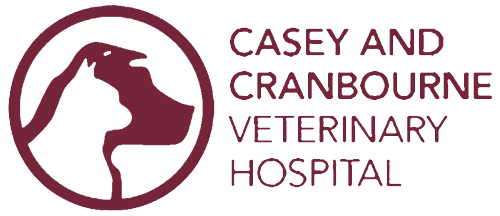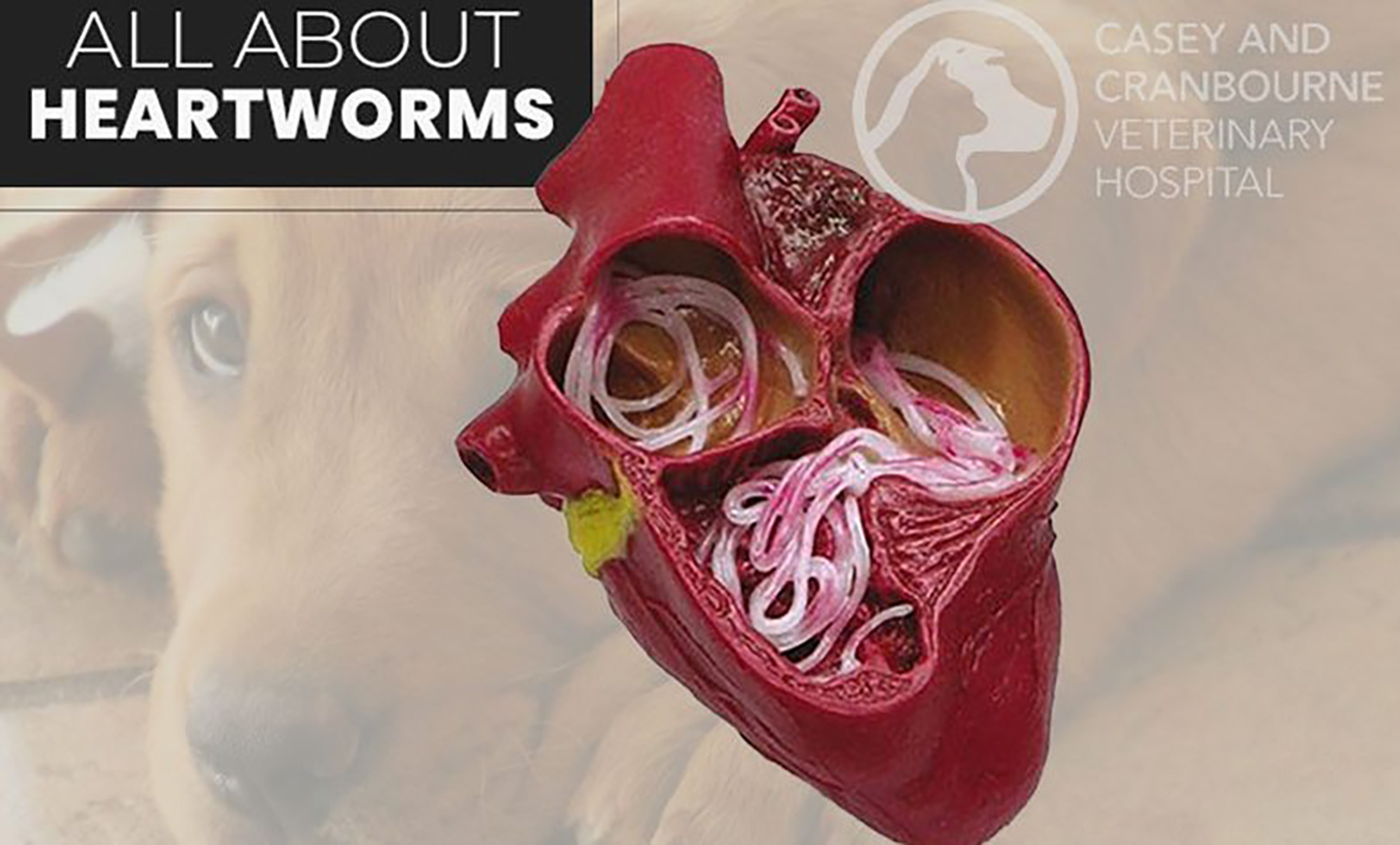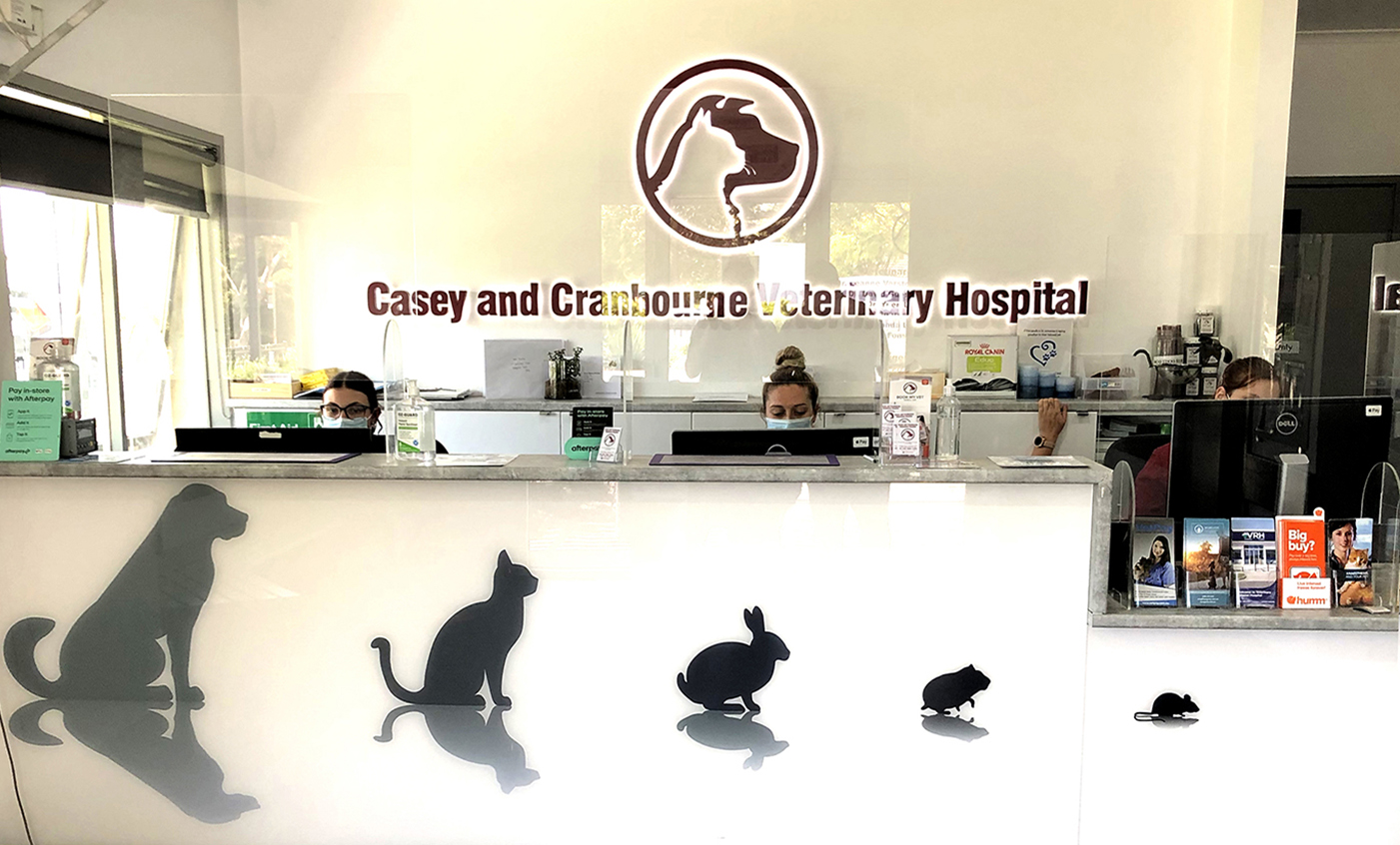PET DENTISTRY
It’s important to take care of your pet’s entire healthcare needs, and that includes looking after their teeth and gums.
At Casey and Cranbourne Veterinary Hospital, we offer pet dentistry services for dogs, cats, rabbits and guinea pigs, so we can check your pet’s teeth at any time to ensure they’re in good condition.
For dogs and cats, if possible, it’s good try home cleaning, as well as feeding them dental chews. However, even the most well looked-after teeth may still require a scale and polish at some stage. If they do, then our veterinary team can help.
Dental disease
Neglecting your pet’s dental health can ultimately lead to dental disease, which, at its most serious stage, can result in tooth loss. Over time, tartar can build around the gum line in your pet’s mouth, slowly eroding the tooth sockets underneath as the bacteria takes root.
Not only does this create gum disease, but the bacteria also enters the blood stream, travelling to your pet’s vital organs and can cause serious damage. Your pet’s kidneys, liver, and heart valves could be at risk while they’ll also be more at risk of becoming diabetic.
If left untreated, serious infection and discomfort can result, along with rotting teeth that will have to be removed under anaesthetic.
Pet dentistry
If your pet requires dental treatment, then we can do whatever is necessary at Casey and Cranbourne Veterinary Hospital. Our clinic has up-to-date, quality dental equipment, so we can do everything from scaling and polishing teeth to carrying out extractions.
To avoid the need for such intervention, however, there are several things you can do at home to safeguard the health of your pet’s teeth:
- Check your pet’s teeth regularly (including the back teeth), to ensure that they’re clean and white. If the teeth are becoming yellowed, then this indicates tartar build-up and should be addressed at once. Reddening gums, a thick build-up of tartar and bad breath all indicate more advanced disease. At this point, you should book an appointment with one of our experienced vets immediately.
- Feeding your pet prescription dry food, which is available at our hospital, means you can give them a specially formulated diet that will help clean their teeth as they eat. While these are very palatable, we do offer a full money-back guarantee if pets won’t eat them. Raw meat fed to cats in large chunks will also force your pet to chew.
- Giving your dog raw bones under supervision can help to clean teeth right up to the gum line. Large soft bones such as brisket or shank bones are good for larger dogs however chewing on big bones can cause teeth to splinter or wear down and are quite fatty so they should be limited and fed under supervision. Consider also deer antlers or goats horns as well as raw hide chews and pigs ears.
- Dental chews such as Greenies (for dogs and cats) or Oravet chews (for dogs only)are also effective ways to manage dental health. We stock a wide range of dental chews at the clinic.
- Tooth brushing with a special cat or dog toothpaste (which doesn’t require rinsing) and finger brush will help to remove tartar and keep teeth clean. NEVER use human toothpaste.
- Dental gels can also help prevent plaque build-up and are applied to the gums with a finger brush or your finger.
At Casey and Cranbourne Veterinary Hospital, we recommend that all dogs, cats, rabbits and guinea pigs come in for a routine dental check at least once a year. If your pet suffers from bad breath, has problems eating, or has bleeding or inflamed gums, then please call us immediately to make an appointment.


